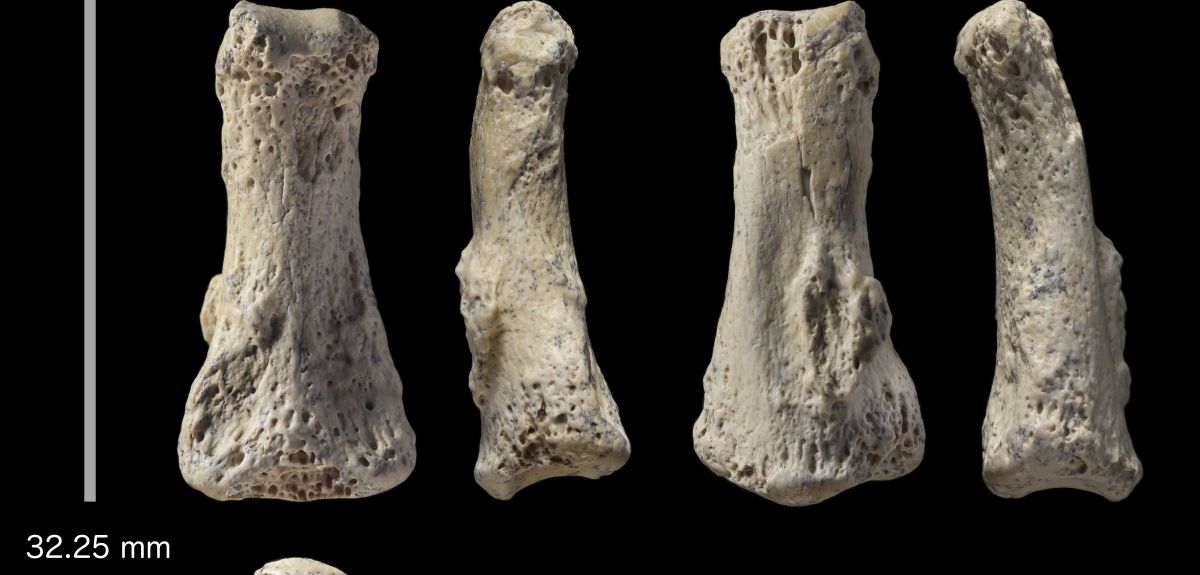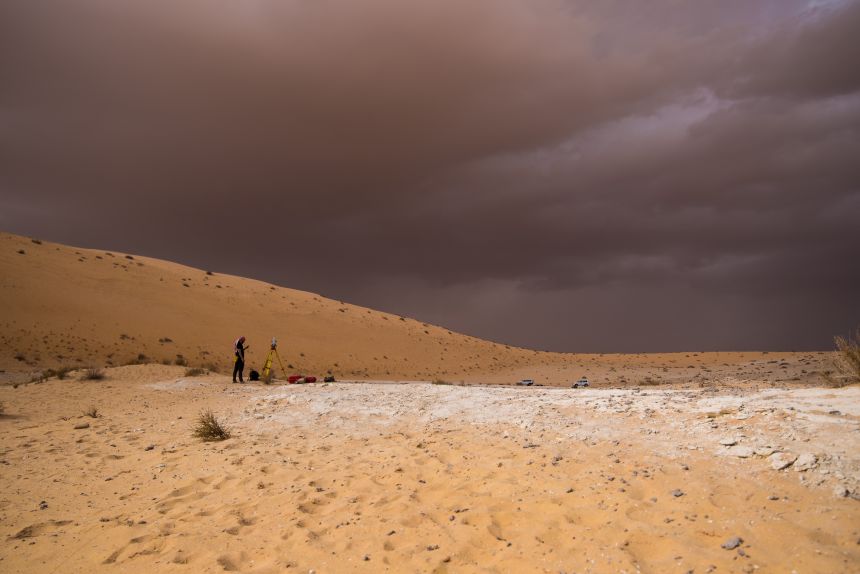
Ancient bones suggest first humans travelled further than we think
Scientists have discovered an ancient bone in Saudi Arabia, dating back to 90,000 years ago.
The relic is the oldest human (Homo sapiens) fossil to have been found outside of Africa and the immediately adjacent Levant, and suggests that people travelled further than initially thought during the first reported human migration into Eurasia.
An international consortium of researchers including Oxford University, the Max Planck Institute for the Science of Human History and the Saudi Commission for Tourism and National Heritage, conducted fieldwork in the Nefud Desert of Saudi Arabia, where they discovered an ancient bone belonging to an early human of the Homo sapiens species which they were able to directly date.
Prior to this discovery, it was widely believed that early ventures from Africa into Eurasia had been unsuccessful and only ever reached the parameters of the neighboring Mediterranean forests of the Levant.
However, the results published in Nature Ecology and Evolution, detail the team’s discovery made at Al Wusta, an ancient fresh-water lake located in what is now the Nefud Desert.
The excavation led to the discovery of a small (just 3.3 cm long), well preserved human fossil which was clearly recognisable as a finger bone. In addition to the human remains, a number of other animal fossils were found including remnants from a hippopotamus and fresh water snails as well as abundant stone tools made by humans
To be sure of their find and date its origins, the bone was scanned in 3D and its shape compared against fingers bones from other Homo sapiens, other early humans, such as Neanderthals and species of primates.
Using a technique called uranium series dating, a laser was used to make microscopic holes in the bone and measure the ratio between tiny traces of radioactive elements. These ratios revealed that the fossil was 88,000 years old.
The combined results conclusively showed that the finger bone, the first ancient human fossil found in Arabia, belonged to our own species; Homo sapiens.
Lead author Dr. Huw Groucutt, British Academy Postdoctoral Fellow of the University of Oxford and the Max Planck Institute for the Science of Human History, said: ‘This discovery for the first time conclusively shows that early members of our species colonized an expansive region of southwest Asia and were not just restricted to the Levant. The ability of these early people to widely colonize this region casts doubt on long held views that early dispersals out of Africa were localized and unsuccessful.’
Other dates obtained from associated animals fossils and sediments converged to a date of approximately 90,000 years ago. Further environmental analyses also revealed the site to have been a freshwater lake in an ancient grassland environment far removed from today’s deserts.
Professor Michael Petraglia of the Max Planck Institute for the Science of Human History, adds: ‘The Arabian Peninsula has long been considered to be far from the main stage of human evolution. This discovery firmly puts Arabia on the map as a key region for understanding our origins and expansion to the rest of the world. As fieldwork carries on, we continue to make remarkable discoveries in Saudi Arabia.’

 New analysis of archaeological data reveals how agriculture and governance have shaped wealth inequality
New analysis of archaeological data reveals how agriculture and governance have shaped wealth inequality
 Cambridge victorious in Women's and Men's Boat Races 2025
Cambridge victorious in Women's and Men's Boat Races 2025
 Expert Comment: Ethical and legal challenges of uterus transplants in Mexico
Expert Comment: Ethical and legal challenges of uterus transplants in Mexico